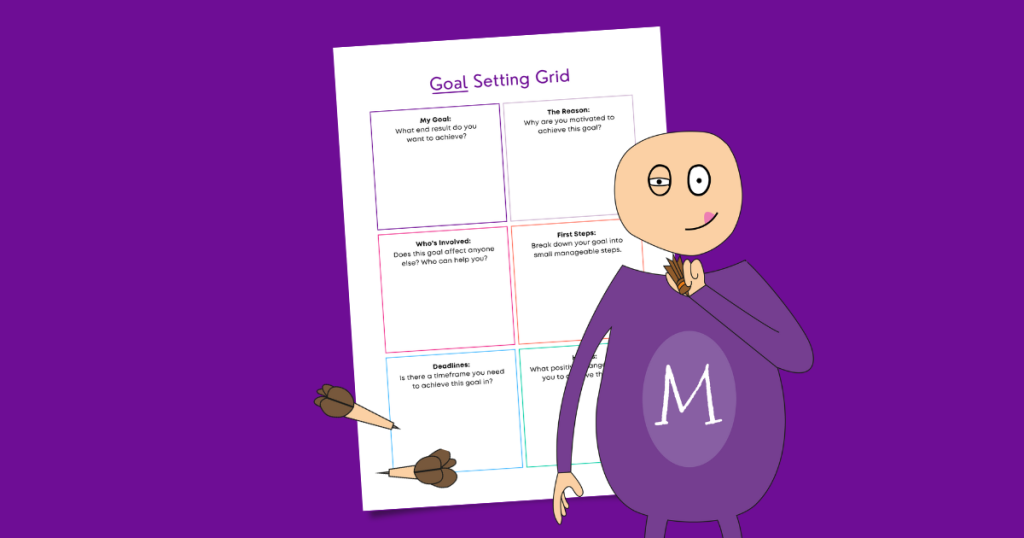
What Is Personal Development and Why Should You Care?
Sometimes, we think that school gives learning a bit of a bad reputation. There is so much more to learning than lessons,
For many students across the UK, it’s time to go back to school! The beginning of a new school year isn’t usually something students look forward to. Going back can often feel a bit boring after all the fun and free time that we have in the summer. There’s no more time to relax. Take your seat, pull out your brand-new pencils and erasers, immediately lose them, and start studying again!
This change in routine can be difficult for students to manage. If you’re feeling worried or overwhelmed, a little bit of preparation will make the transition easier and set you up for a successful year! It’s the perfect opportunity to start fresh and plan your future, so think about what you want to achieve this year.
This is the easiest and simplest way to get started is to find the equipment you need this year. Having easy access to the tools you need will allow you to avoid distractions and focus on the important stuff – you won’t spend the first five minutes of a lesson trying to find a pen to use!
Depending on the year you’re in, you start studying a new subject. Make sure you come prepared with the right equipment. Higher-level maths may require a scientific calculator. Why not find a binder to gather all those science notes you kept losing last year?
If you struggle with time management or staying organised, why not treat yourself to something nice? Consider investing in a personal journal and use it to plan your week and set yourself goals. Writing out your notes will allow you to record your thoughts in one place. You can then look back and adjust things when needed.
The best way to improve this year is to learn from the successes and failures of previous years. When reflecting on the past, don’t be hard on yourself. Give yourself grace and be rational. It’s not about criticising yourself; it’s about recognising areas to improve.
Was there a particular subject that you struggled with? If so, what can you do to improve this year? It could be that you push yourself outside of your comfort zone and ask more questions in class. Finding your study style might make it easier to process and remember the information. Sometimes it’s easier to reflect on the negatives, but focusing on the good is just as important. What were you most proud of achieving? Is there an area where you feel confident in your abilities? Understanding what you’re good at can help you play to your strengths.
If you’re heading back to school, you may have set some expectations about what you want to achieve. Big goals are great, they give you something to aspire to and keep you motivated, but they need to be achievable.
For example, if you are struggling in English and you’re stuck around a 3, aiming to get a 9 is going to be very difficult! A positive mindset is key to success, but you don’t want to put yourself under too much pressure. A goal like this is not impossible, but it’s certainly not healthy or helpful.
Instead, set realistic goals, such as achieving a 4 or a 5 in English. Then, break down that big goal into little goals; study every Friday, read the necessary material, complete the coursework before the deadline, etc. Consider how you are going to monitor your progress as you work towards your goals. For example, if you need to write a 1000-word essay, set a small target to write 200 words a day. You’ll be able to clearly see how long it will take and how much work you are doing. Plus, 200 is far more achievable and less daunting than a 1000-word goal.
If you want to begin creating goals for your academic year, check out our newest free tool, the Goal Setting Grid!

We’ve sent your FREE download straight to your email inbox. If you can’t seem to find it, don’t worry. It might have found its way into your spam/junk folder so please check in there… you know how technology can be sometimes!
When making plans for the future, this Goal Setting Grid will help you set specific, well definied goals that will give you a better chance of success!
Sometimes, when we give ourselves a plan, create a schedule, or set goals to complete, they feel as though they are set in stone. “This is the situation, and there’s only one way to get through it!” The problem is that things don’t always go to plan. The purpose of setting goals is to find the most effective way to achieve the result you want. Adapting to changes and adjusting things along the way is all part of the process. If you hold on to a routine that isn’t working, you’ll derail the moment a curveball gets thrown at you and end up getting further away from the result you want to achieve.
When you go back to school, you might find that your study schedule just isn’t working. Maybe you planned to study right after school every day. The intention is good, but after a long day at school, it’s going to be impossible to focus. Instead, adapt your initial plan. Aim to study later in the afternoon, for example after dinner, so you have time to unwind and refuel. Adapting to changes is about trial and error. Don’t be afraid to mix things up; just find what works for you.
When you go back to school, you may notice that some people are more prepared than others. If you are struggling, don’t panic; there are plenty of ways to make your year a success. As we said earlier, creating plans and setting goals only works if you go into it with a positive mindset. The top 3% of achievers, on this planet, achieve their goals 90% of the time! You may not hit every goal you set, but understanding how to make them realistic and achievable will help you stay on track.
You can learn more about this in our Magic Steps to Goal Setting Programme. Spoiler alert: there aren’t really any secrets! Success is a result of creating daily habits and sticking to them. So, come on board, and let’s take those small steps toward that big goal.
Follow us on social media!

Sometimes, we think that school gives learning a bit of a bad reputation. There is so much more to learning than lessons,

Seeing the ideal future can come to some people as naturally as looking out the window, with the ideal career and pathway

Sleep training is something that everyone should do! It impacts nearly every aspect of our lives, from our mood and energy levels